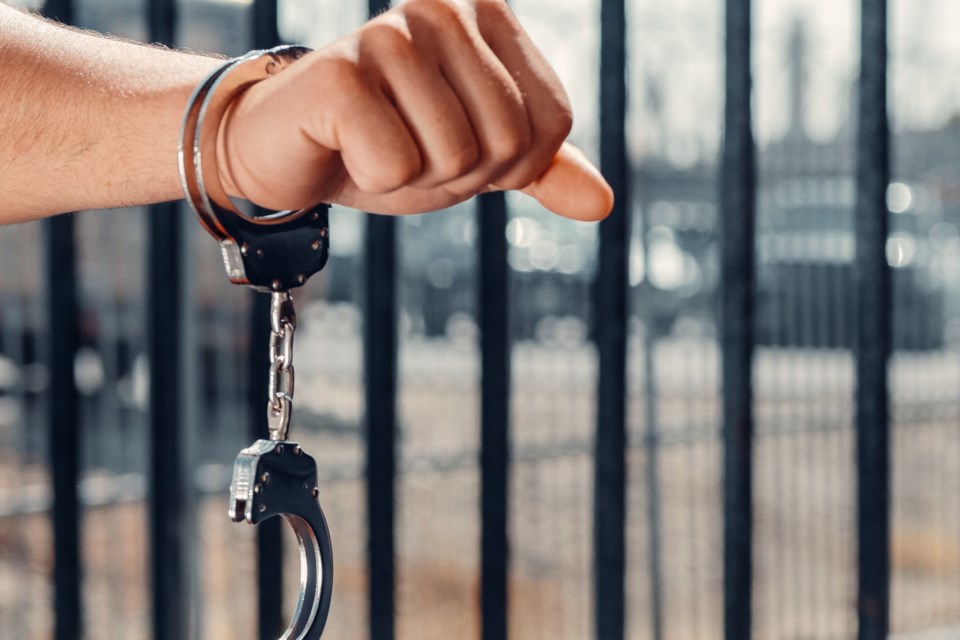While the local NDP candidate in the June 2022 provincial election is taking notice of the actions the B.C. government is taking to decriminalize the personal possession of drugs, its provincial counterpart in Ontario is referring questions on the matter to the feds.
The move to ensure addiction is treated as a public health concern — instead of a criminal justice issue — is one worth exploring in Ontario, confirms Erika Lougheed, an East Ferris councillor who is vying with incumbent Ontario PC MPP Vic Fedeli for the seat in Nipissing.
In B.C., with support from public health and the Canadian Association of Police Chiefs, the NDP majority government proposes to offer information on health care and social services to people in possession of small amounts of drugs rather than fine or arrest them.
"Overdose prevention, safer supply, and decriminalization are the three areas of drug policy reform that need to be looked at in order to begin to abate the current overdose crisis," says Lougheed. "B.C. is showing serious leadership on this issue and I’ll be following it closely."
B.C. is in the midst of a five-plus-year opioid crisis that has now taken nearly 8,000 lives in that time period, spurring the province to apply to the federal government to remove criminal penalties for possession of illicit drugs in small amounts.
Decriminalization involves applying for an exemption from Health Canada under the Controlled Drug and Substances Act.
According to a Canadian Press report, Sheila Malcolmson, B.C.'s mental health and addictions minister has stated the government wants to decriminalize personal amounts of up to 4.5 grams [total] of illicit drugs, including heroin, fentanyl, [powder and crack] cocaine, and methamphetamine.
See related: Drug users group files decriminalization lawsuit in B.C. Supreme Court
The move is designed to combat the stigma surrounding addiction and encourage drug users to seek treatment.
"When there is a threat of prison for people living with addiction, they don’t seek treatment or care. It’s a deterrent to getting them the supports they need. We should be putting our collective efforts toward helping people instead of criminalizing them," Lougheed observes.
Meanwhile, the sitting Ontario government provides a list of its investments associated with combating the province's own opioid crisis but does not address the question posed — whether the decriminalization of personal possession is a model worth exploring here in Ontario.
A request for comment from Fedeli was forwarded to Brett Weltman, the director of communications in the office of Associate Minister of Mental Health and Addictions Michael Tibollo.
Weltman states, "Our government remains committed to addressing the problems surrounding addiction, including opioid use and overdose, and will support people who use drugs to get the help that they need. Through this year’s budget, we have invested an additional $175 million that builds on our previous annual investments, meaning over $525 million in net new annualized funding for mental health and addictions this year."
Those investments are contributing to the addition of harm reduction workers, the expansion of RAAM clinics, and establishing acute consultation services in areas with high rates of opioid use, per Weltman.
Funding has been added for targeted addictions services and supports, including treatment for opioid addictions, including $6.9 million in provincial opioid response investments, over $18.8 million in bed-based investments for adults and youth who need intensive supports, and $4.75 million for community-based services to support lifelong stabilization and recovery.
"In addition to these investments," Weltman adds, "We have taken a number of steps to support the mental wellness of people who use opioids, including supporting Consumption and Treatment Services (CTS), the Ontario Naloxone Program and the Ontario Naloxone Program for Pharmacies and harm reduction programs.
"Every Ontarian deserves to be fully supported in their journey from prevention to recovery. It is our government that will ensure those struggling with addiction get the help they need, when and where they need it."
Despite the pursuit of the matter by the provincial body in B.C., further questions on the similar decriminalization of illicit substances in Ontario have been directed to the federal government.
According to Public Health Ontario, accompanied by a steady rise in emergency department visits and hospitalizations, opioid-related deaths in Ontario have risen each year from 867 in 2016 to 1,265 in 2017, 1,479 (2018) 1,516 (2019), to 2,222 in 2020, a rise of nearly 60 per cent over the previous year.
In the North Bay Parry Sound District Health Unit catchment area, opioid-related deaths have increased from seven in 2016 to nine in 2017, 14 (2018), 19 (2019), to 51 in 2020. The change from 2019 to 2020 saw a 168 per cent increase in deaths and the number of deaths this year surpassed 2020's total months ago, according to health officials and the community drug strategy partners.
See also: Safe drug site will cut local deaths says advocate
And: Northern cities working toward supervised consumption sites
The opioid crisis was addressed by Ontario NDP Leader Andrea Horwath as she joined Lougheed in North Bay in October.
“The overdose crisis in North Bay and throughout Ontario is tearing families apart,” Horwath said.
“Parents are being forced to hold funerals for their sons and daughters — people who should have had so much life ahead of them. And the whole community is being touched by the effects of this crisis.”
The province requires “an urgent need for investment in mental health and addictions,” Lougheed suggested, saying it's time for a new approach and better public policy as the Ford government has capped the number of overdose prevention sites and paused the provincial opioid task force.
"One day I think we’ll look back at how awful, and frankly, how inhumane our current drug policies are," says Lougheed.



